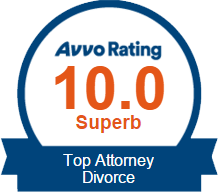 Some cases of alcoholism/drug addiction are extreme and easy to spot.
Some cases of alcoholism/drug addiction are extreme and easy to spot.
“He drinks a fifth of gin every night,” a recent client told me. “He has lost many jobs due to poor performance reviews.”
Others normalize the addicted behavior with excuses like stress at work, a death of a loved one, or it being a “family disease.” However, if your spouse or partner in parenting is drinking within a few hours of waking up on Saturday mornings, this isn’t normal.
“She spends our family money on booze and pills.” Xanax and/or narcotic drugs prescribed for pain disappear from the medicine cabinet. The kids ask why Daddy talks funny at night. These are real problems.
Take the following quiz to see if your co-parent is addicted:
- Does he/she come home after regular work hours?
- Do you notice frequent cash withdrawals?
- Does your spouse/partner hide bottles, receipts from bars, have a stash of medication for which he/she is not prescribed?
- Does your spouse/partner have a history of DWI, DUI or past abuse?
- Does he/she have family members who are addicts?
- Do you find yourself in the role of caretaker to monitor use or treat the hangovers?
- Does your spouse/partner promise that they will quit when things get better?
- Have you ever contemplated leaving because it has gotten too bad?
- Do you feel less important than the substance your partner is abusing?
- Does your spouse’s life seem out of control due to addiction? (job loss, financial problems, relationships disintegrating)
Solutions if you want to stay with the Addict:
- Rehab- usually 28-30 days duration at a facility equipped to handle the emotional and physical challenges of detox and longer-term solutions of living sober; check your insurance plan to see if covered (longer term solution that is typically inpatient)
- Detox- 5 days involving Librium, intense observation and always inpatient; this is the first in triaging true addicts who require slow weaning from their substance of choice to a step-down facility or outpatient therapy;
- Alanon- This is a support group for the counterparts or loved ones affected by addiction;
- Alcoholics Anonymous/Narcotics Anonymous-These support groups are free, open to the public, prevalent and great ways to seek recovery through a time-tested group environment.
Ways to monitor the addicted parent during litigation:
- Random drug tests- you can ask the court to do random tests monthly; loser pays, meaning that if you ask for the test and it is negative, then you pay for it;
- Breathlyzer- in extreme cases, I have suggested chronic multiple DWI clients to submit to breathlyzer attached to a car or in-home device
- Supervised visitation- you can name a third party to watch the visits in order to ascertain whether the parent is impaired during his/her period of access.
———
Natalie Gregg
The Law Office of Natalie Gregg
(972) 829 – 3923
[email protected]



